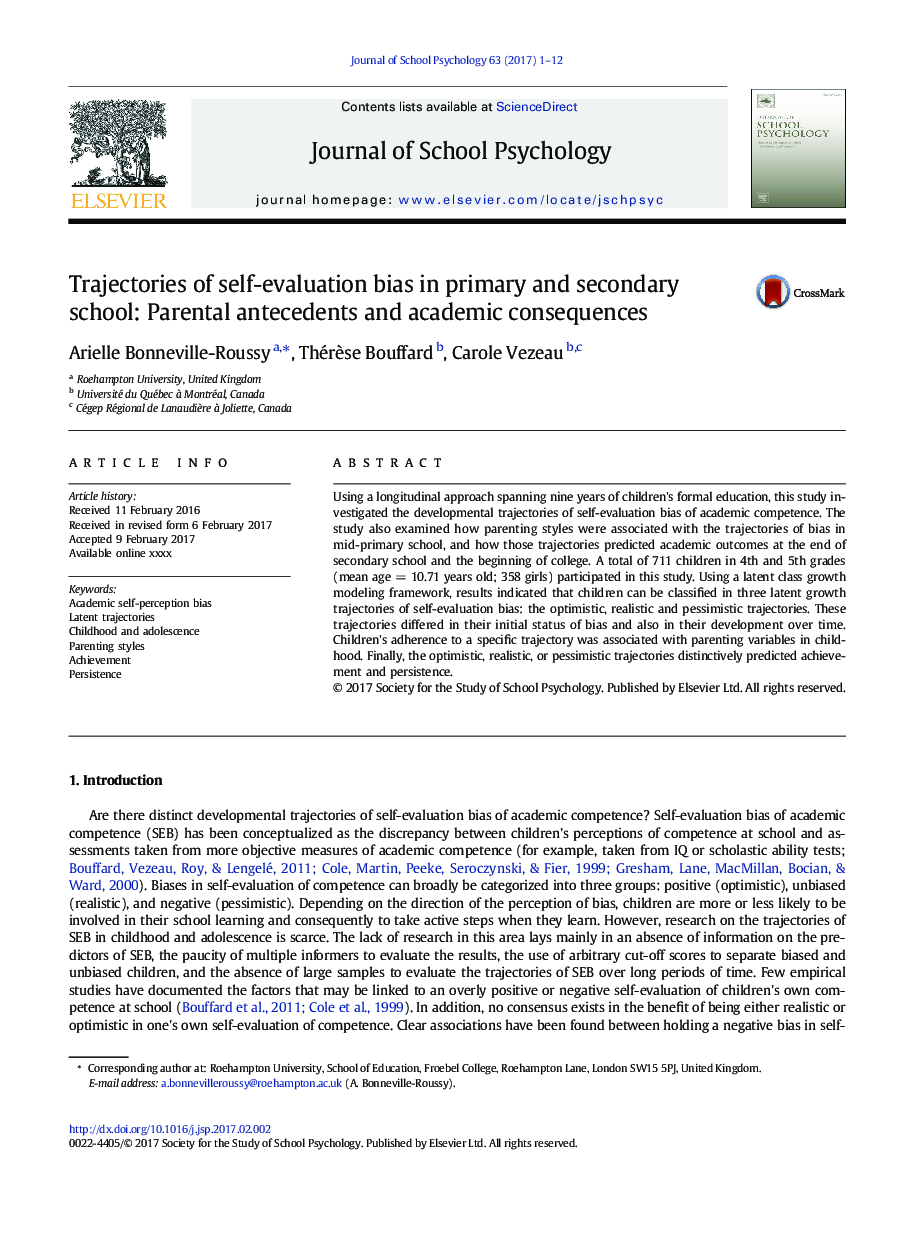| Article ID | Journal | Published Year | Pages | File Type |
|---|---|---|---|---|
| 4939785 | Journal of School Psychology | 2017 | 12 Pages |
Abstract
Using a longitudinal approach spanning nine years of children's formal education, this study investigated the developmental trajectories of self-evaluation bias of academic competence. The study also examined how parenting styles were associated with the trajectories of bias in mid-primary school, and how those trajectories predicted academic outcomes at the end of secondary school and the beginning of college. A total of 711 children in 4th and 5th grades (mean age = 10.71 years old; 358 girls) participated in this study. Using a latent class growth modeling framework, results indicated that children can be classified in three latent growth trajectories of self-evaluation bias: the optimistic, realistic and pessimistic trajectories. These trajectories differed in their initial status of bias and also in their development over time. Children's adherence to a specific trajectory was associated with parenting variables in childhood. Finally, the optimistic, realistic, or pessimistic trajectories distinctively predicted achievement and persistence.
Related Topics
Social Sciences and Humanities
Psychology
Applied Psychology
Authors
Arielle Bonneville-Roussy, Thérèse Bouffard, Carole Vezeau,
